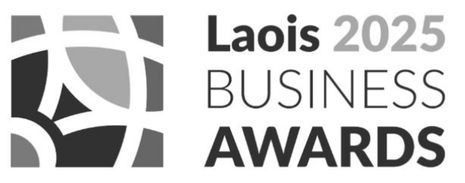Children Savings Plan
Investing in their dreams today secures a brighter tomorrow for your child.
Start their savings journey now!
Our award-winning advisors can help you build an investment strategy to meet your goals.
Investing in their dreams today secures a brighter tomorrow for your child.
Start their savings journey now!
Our award-winning advisors can help you build an investment strategy to meet your goals.
Investing in a fund can be an excellent way to save for a long-term goal such as a child’s education due to the possibility of larger returns than a standard savings account, while still maintaining your purchasing power. If you wish to save for your kid’s college education you should consider a children’s savings plan.
Children’s Savings Plan’s are a regular premium, unit-linked savings plan. It allows you to invest in a range of investment funds at the start of the policy, and once you make your choice of funds, the fund choice applies for the life of the plan.
Opening a Child’s Savings plan is very simple, you can choose which funds you would like to invest, and how much you wish to put aside each month, it can be as little as €75. One of the financial advisors at LowQuotes can help you understand the risks and potential rewards of investing in a fund for your child’s education
The earlier you start saving, the more money will be accessible to the child when they need it. Savings have more time to develop the earlier you start. By starting a savings plan early, you can give your child a strong financial foundation and help them achieve their dreams.
It’s a good idea to start a children’s savings plan as early as possible. This gives your child’s money more time to grow and can help them achieve their financial goals. But if you haven’t started it’s never too late, start as soon as you can.
When deciding on a savings plan for your child, consider your goals, budget, and how long you have to save. The image below shows the earlier you start saving the more your savings will build.


Investing in a children’s savings plan might generate substantial growth but the amount will depend on a variety of factors, such as the amount you wish to contribute, the length of time, and the level of risk you choose.
You even might want to invest your child’s benefit, the monthly payment to the parents or guardians of children under 16 years of age (or 17 if they are in full-time education or full-time training or have a disability and cannot support themselves).
Child Benefit is €140 a month for each child. This payment also known as children’s allowance could be invested to enlarge it.
If you invest €140 in a fund for 18 years you will have €30,240 saved up. Putting your money in a fund your savings can double. Instead of having only what you deposited €30,240 you may have €66,713. Investing in a fund can help protect against inflation, as investments have the potential to grow at a rate greater than the rate of inflation.
Investing in a bank’s regular savings, although is low risk, you will get no return. On the other hand, by choosing higher risks funds you might get the chance of higher returns as in the example below.
Regular Savings – you get exactly what you deposited
Child’s benefit | Years | Total – regular savings |
€140 | 18 | €30,240.00 |
Investing in a fund – you get what you deposited plus growth
Child’s benefit | Years | Total | Profit (estimate) | Total |
€140 | 18 | €30,240.00 | €36,473 | €66,713 |



Starting to save for your children’s future education in Ireland is best done as early as possible. The earlier you begin, the more time your savings will have to grow through compound interest and investment returns. This allows you to accumulate a more substantial fund by the time your child reaches the age for higher education. Initiating a savings plan at the birth of your child or even before can significantly ease the financial burden of education costs when the time comes.
Child savings in Ireland typically refers to financial products specifically designed to help parents or guardians save money for a child’s future needs, primarily focused on long-term savings or education expenses. These savings products are commonly established to secure the child’s financial well-being, often for education costs, a house deposit, or other significant expenses as they grow up.
How it works:
Child savings plans in Ireland are designed to provide a financial foundation for a child’s future. It’s crucial to research and select a savings plan that aligns with your long-term goals and financial preferences to ensure your child’s financial security as they grow up.
The cost of covering your child’s college education in Ireland can vary widely based on multiple factors, including the type of college, course duration, potential inflation, and lifestyle choices.
According to The Zurich Cost of Education Survey 2023 shows that college students living at home and in rented or student accommodation face staggering costs.
The average cost of putting a child through third-level education during the period of 3-4 years is €66,152 with student accommodation and €46,560 with rented accommodation. It stands at €25,844 while still living at home, which is still a significant amount of money.
To estimate how much you might need to save for your child’s college costs, consider these steps:
Research Expected Costs: Research the current and projected costs of college education in Ireland. Consider tuition fees, accommodation, living expenses, and other associated costs.
Set a Savings Goal: Based on the anticipated expenses, establish a savings goal. Create a budget by estimating the total costs of a college education for your child.
Use a Savings Calculator: Utilize online savings calculators that take into account your expected savings period, estimated rates of return, and the targeted savings goal. These calculators can help determine how much you need to save monthly or annually to reach your goal.
Invest and Save Wisely: Start saving early to take advantage of compound interest and investment returns. Explore various savings options, such as dedicated education savings plans, investment funds, or tax-advantaged savings accounts, to make the most of your contributions.
Regularly Review and Adjust: Periodically review your savings plan and make adjustments as needed. Keep an eye on changing education costs and adjust your savings plan accordingly.
Consider Other Financial Aids: Encourage your child to apply for scholarships, grants, or bursaries to help offset some college expenses.
Speak with one of our advisors to discuss your specific financial situation, long-term goals, and to create a tailored plan to ensure you’re on track to cover your child’s college costs. The earlier you start saving, the more time your money will have to grow, potentially lessening the financial burden when the time comes.
Saving for your children’s future can be approached through both savings accounts and investment funds, each with distinct characteristics:
Savings Account:
Low Risk: Savings accounts are low-risk options that offer deposit protection up to a certain limit. They typically provide a fixed or variable interest rate.
Easy Access: These accounts are highly liquid, allowing you to access the funds at any time without penalties. They’re suitable for short-term or emergency savings.
Stability: Savings accounts offer stability, making them suitable for short-term goals or as an emergency fund. However, the returns may be lower due to the low-risk nature.
Security: In Ireland, savings accounts are protected by the Deposit Guarantee Scheme, which ensures deposits up to a certain amount per institution per depositor.
Investment Funds:
Higher Potential Returns: Investment funds offer the potential for higher returns compared to savings accounts. They invest in various assets like stocks, bonds, and other securities, potentially yielding higher profits.
Risk and Volatility: Investment funds involve market risk and can be subject to volatility. They are better suited for long-term goals, as the value of investments can fluctuate over time.
Diversification: Investment funds provide diversification by spreading the investment across various assets, reducing the impact of a single investment’s performance.
Long-Term Growth: While they offer higher potential returns, investment funds require a longer investment horizon to mitigate short-term fluctuations and benefit from compounding.
When saving for your children’s future, consider a balance between both approaches. Savings accounts can provide stability and security for short-term or emergency needs, while investment funds can potentially offer higher returns for long-term goals, such as funding higher education or other significant life events. Speak with one of our expert award-winning advisor for guidance.
In Ireland, standard savings accounts typically generate interest, which is subject to Deposit Interest Retention Tax (DIRT). DIRT is a tax deducted at source from the interest earned on savings and deposit accounts in financial institutions. The current DIRT tax rate is 33%. This means that financial institutions deduct 33% tax from the interest earned on your savings before it’s credited to your account. (confirm with philip)
We recommend you to always seek professional advise for the most updated information on savings accounts and taxation in Ireland, as tax laws and rates can change, affecting the tax treatment of savings accounts.
Warning: Past performance is not a reliable guide to future performance.
Warning: Benefits may be affected by changes in currency exchange rates.
Warning: The value of your investment may go down and up.
Warning: If you invest in these funds, you may lose some or all of your investment.
We’re proud to have been featured in Ireland’s leading media outlets, sharing insights on insurance, mortgages, and financial planning.












For press, marketing, or partnership enquiries, please reach out to our Media & PR team.
Here at LowQuotes, we want to ensure that our clients receive the highest standard of service. If you have a passion for connecting with people and aspire to thrive in a culture built on trust, dedication and excellence, please send us your CV below.

Enter your details below and a Financial Advisor will call you back promptly.
We would like to assure our customers that although this Worldwide Pandemic has struck our Nation hard, we are still here for our new and existing customers. All phone calls and emails will be dealt with accordingly.
In the unfortunate circumstance that a customer contracts COVID-19 and dies, our life policies would pay out in line with our usual claims philosophy.
All Consultations will be held by Phone or Online via Computer/Smart Device to remove face-to-face interactions and keeping in line with social distancing guidelines recommended by the Government.
We at Lowquotes.ie hope you, your family and your loved ones stay safe & healthy in this time.